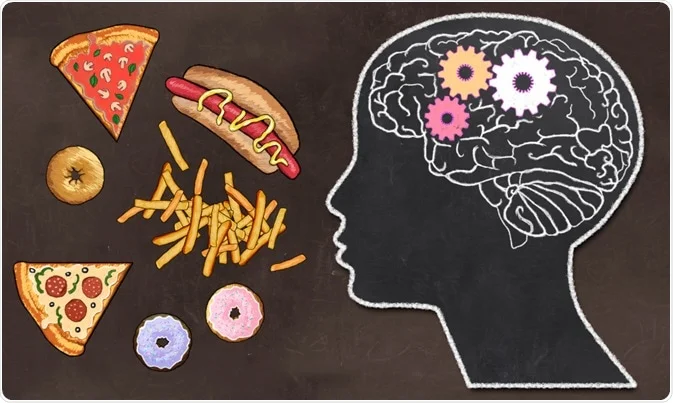The Psychology Associated with Eating Unhealthy Food high in saturated and trans fats, such as butter, cheese, and processed snacks, despite knowing their negative health impacts, is complex and multifaceted. Several psychological factors and mechanisms contribute to this behaviour.

Firstly, the addictive nature of fatty foods plays a significant role. Research has shown that high-fat foods can trigger the release of dopamine in the brain, similar to addictive substances. This creates a reward response that reinforces the consumption of these foods, making it difficult for individuals to resist. The concept of “fat addiction” refers to a psychological and physiological dependence on fat-rich foods, which has gained attention in recent years.
Secondly, the emotional impact of consuming fatty foods contributes to their continued consumption. Studies have shown an inverse relationship between trans fat consumption and positive emotions and a positive relationship with negative emotions. This suggests that people may turn to foods high in trans fats as a form of emotional regulation or comfort eating, even when aware of the health risks.
Thirdly, the widespread availability and marketing of foods high in saturated and trans fats make them challenging to avoid. These foods are often convenient, affordable, and heavily promoted, making them an easy choice for many individuals. The food industry’s use of these fats to enhance flavour and texture similarly contributes to their appeal, creating a sensory experience that can be hard to resist.
Fourthly, the concept of cognitive dissonance plays a role in this behaviour. People may experience discomfort when their actions (eating unhealthy foods) conflict with their knowledge (awareness of health risks). To alleviate this discomfort, they may rationalise their behaviour or downplay the risks, allowing them to continue consuming these foods without feeling guilty.
Fifthly, the immediate gratification of fatty foods often outweighs the consideration of long-term health consequences in people’s decision-making processes. The pleasure derived from eating these foods is immediate and tangible. At the same time, the health risks are often perceived as distant and abstract. This cognitive bias towards immediate rewards can make it challenging for individuals to prioritise their long-term health over short-term pleasure.
Sixthly, habitual and cultural factors also contribute to consuming foods high in saturated and trans fats. Eating patterns are often deeply ingrained and influenced by cultural norms, family traditions, and personal habits. Changing these established behaviours can be tricky, even when individuals recognise the health risks.
Seventhly, stress and emotional eating play a significant role in consuming fatty foods. Many people turn to high-fat comfort foods as a coping mechanism for stress, anxiety, or other negative emotions. This pattern of emotional eating can become a habitual stress response, making it difficult to break the cycle, even when the health implications are understood.
Lastly, the phenomenon of “health halos” and misconceptions about fats can contribute to the continued consumption of unhealthy foods. Some individuals may believe that specific sources of saturated fats are healthier than others or may not fully grasp the differences between various types of fats. This lack of clear understanding or misinterpretation of nutritional information can lead to continued consumption of unhealthy fats, even among health-conscious individuals.
Tomorrow, we are going to look at The Physiology of Decision-Making
